Fertility
Using acupuncture and Traditional Chinese Medicine (TCM) to treat infertility dates back 2,000 years. These ancient techniques raise fertility rates and encourage a woman’s entire body in a way that unlocks potential for good health and childbearing.
Studies documented by The American Pregnancy Association show that the most powerful fertility treatments include a combination of acupuncture, herbal medicine and traditional medical practices. Conception can also occur without traditional medical interventions when solely acupuncture and herbal medicines are used.
Researchers from Weill Cornell Medical Center in New York examined recent studies and determined that acupuncture is effective in:
Increasing blood flow to the uterus, thus improving the chances of an ovum implanting on the wall of the uterus.
Reducing stress and anxiety. Hormones secreted during stressful situations can greatly decrease fertility.
Normalizing hormone and endocrine systems that balance ovulation, especially in women who have polycystic ovarian syndrome.
Positively affecting the hypothalamic-pituitary-ovarian axis, which plays an important role in fertility.
Regulating the menstrual cycle.2
Researchers found, in a 2007 study, that acupuncture can improve the quality of life of patients undergoing in vitro fertilization (IVF). It was also shown that women getting acupuncture reported less abdominal pain, nausea and stress two hours after oocyte aspiration (egg collection) compared to women receiving conventional analgesia.3
The British Medical Journal published research in 2008 concluding that acupuncture can be offered as a clinically relevant complement to IVF, easing the uterus and improving blood flow for the effective implantation of an embryo in the uterine lining.4
An acupuncturist’s approach to fertility.
According to acupuncture and TCM theory, infertility is due to an imbalance of Qi (pronounced “chee”) and blood, which affects the healthy functioning of organ systems. When Qi, or vital energy, and blood are moving freely throughout the body, every cell, tissue and organ is fully nourished and able to function properly. Acupuncture and TCM can improve the fertility potential of women by affecting the quality, quantity, flow and balance of Qi and blood.
Kidney Organ System. The kidneys control the release of the ovum and create a substance called Jing Qi. This is essential to have a healthy body, mind and pregnancy. If a problem exists within the kidneys, there may be an inadequate supply of Jing Qi which could cause infertility. Chinese herbal medicine in addition to acupuncture can nourish and support Jing Qi and general kidney health.
Spleen Organ System. A woman’s body requires an adequate amount of blood to maintain a normal menstrual cycle, grow a fetus and have an overall healthy pregnancy. Disharmony in the spleen can cause imbalances and an inadequate supply of blood. Acupuncture and Chinese herbal treatments can build and nourish blood to promote the healthy flow of blood to the uterus.
Liver Organ System. Conception and a healthy pregnancy both rely on the unrestricted flow of Qi and blood throughout the body. The liver is responsible for supporting this function. If it is out of balance, some areas of the body will not receive the required amount of Qi and blood. This can lead to depression, stress, anxiety, and greater possibility of infertility.
Acupuncture and TCM provide a natural, effective, safe, and drug-free approach to treating infertility and supporting a healthy pregnancy. Here are some reasons to try acupuncture and Traditional Chinese Medicine:
An acupuncturist treats beyond symptoms and signs by treating root causes that have led to the problem or disease.
No drugs are ever used for acupuncture and TCM. Invasive procedures and drug therapies used in Western treatment can cause unwanted side effects and accumulate toxins in the body.
Acupuncture and TCM can be used to support, strengthen and balance health and well-being, therefore increasing the success of other procedures.
Consider acupuncture during pregnancy and birth. According to the World Health Organization, acupuncture has been found useful for reducing labor pain, nausea and vomiting, and can significantly reduce the duration of labor. There is valuable evidence that acupuncture can also help with a breech birth.5,6
Resources
American Pregnancy Association. http://www.americanpregnancy.org/infertility/acupuncture.htm.
Five ways acupuncture can boost fertility. Prevention.com. 2002.
Alternative Therapies, May/June 2007, Vol. 13 No.3.
Manheimer, E., et. al. Effects of acupuncture on rates of pregnancy and live birth among women undergoing in vitro fertilization: systematic review and meta-analysis. British Medical Journal. February 2008;336:545-549.
World Health Organization. www.who.int/medicines.
A Manual of Acupuncture. Deadman P. & Mazin Al-Khafaji. Eastland Press, 2007. Page 326.
